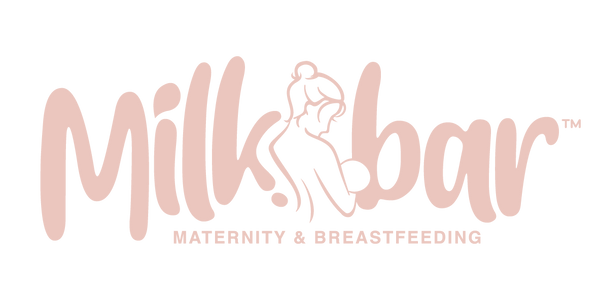
Alcohol & Breastfeeding
Share
Congratulations, you just made it through nine months without wine! (All for a great cause of course.) You’re probably hanging out for a beverage (or two) especially with the holiday season amongst us, but before we get too social, let’s consider that little human who is now relying on you for sustenance. What you put in your body, has an impact on what goes into their body, so how much is too much when it comes to drinking alcohol? Does a little bit do little harm? Or should your sobriety continue til the breastfeeding days are done?
I took a look at what drinking alcohol while breastfeeding really means for you and your baby in hope to answer some common questions and here’s what I found.
How does alcohol affect breast milk?
Alcohol will appear in your breast milk at around about the same level as it appears in your bloodstream. A blood alcohol reading would therefore reflect your milk alcohol reading. While the amount that will appear in your bloodstream is relatively small after just one drink, don’t forget that your baby can’t process alcohol as well as you - their bodies are small, and livers are immature.
How long does alcohol stay in my breastmilk?
After around three hours per drink, your breast milk will be completely clear of that alcohol. Breastmilk doesn’t ‘hold’ the alcohol, so don’t pump and dump it if you don’t have to! Only express milk that may potentially have had alcohol in it for comfort or to maintain supply. Pumping milk will not cause the alcohol to leave your body any faster.
If you’re planning on a big night, or if you need to feed within your drinking ‘window’, plan to have expressed, alcohol-free breastmilk at hand to be on the safe and stress free side!
What effect does alcohol have on my baby?
Studies say babies can process alcohol at around half the rate of adults, up until the age of three months, when their liver is developed enough to process it at around the same rate as us.
While the relaxing effect of alcohol may help with your milk let-down, there are some not so beneficial outcomes too. Within thirty minutes, one standard drink will reach your breast milk and can alter its smell, if consumed by your baby it can also cause mild sedation, which might not sound so bad if it’s time for bed, however they’ll then generally sleep for a shorter period of time.
Drinking large amounts of alcohol, or frequent binge drinking, can have an effect on your baby’s growth and motor skill development, not to mention your ability to responsibly continue to breastfeed and care for your baby. If you find that you’re turning to alcohol frequently, have a chat to your healthcare professional.
How can I safely drink while breastfeeding?
Allow yourself a window of around 2-3 hours after you finish a drink before you start breastfeeding your baby. If possible, time your drink so that you won’t need to breastfeed within this timeframe, (for example have a drink as you are feeding or right after feeding, and before your baby usually has a longer sleep).
If you do need (or want) to feed within this time, the easiest and safest way is to have some pumped milk that you have expressed before consuming alcohol that you can feed in a bottle.
There are amazing apps available nowadays such as ‘Feed Safe NZ’ which take into account your height, weight, standard drink consumption and time of drink & advises when your Breastmilk should be clear to feed again!
Side note - It’s a great idea to give yourself at least a month to establish a good breastfeeding and expressing routine first before having a drink.

How much is a ‘safe’ amount of alcohol to drink?
The more drinks you have, the longer it will take for the alcohol to leave your system. All of us process alcohol differently, so what is ‘safe’ will vary from mother to mother. Guidelines suggest that it’s best to consume no more than 1-2 units of alcohol, once or twice a week - while avoiding it altogether in the first 3 months if possible.
Not drinking alcohol will always be the safest option. However studies confirm that if you are using the right strategies to protect your baby (delaying drinking until the end of a feed, eating while drinking, waiting a few hours after drinking, and expressing) then you are not putting your baby at any risk.
If you prefer to play it completely safe, then the good news for us mums, is that there are plenty of delicious alcohol-free options to keep us going - and an added bonus is that some ingredients in 0% beer can help boost your supply!
If you want to find some more support and other mums to bounce ideas, advice, laughs and questions around with - come join us in Milkbar Mum Chat on Facebook, together, we've got this!
Enjoy your holidays with your beautiful little babe(s) mama! You are amazing!
xx Laura
